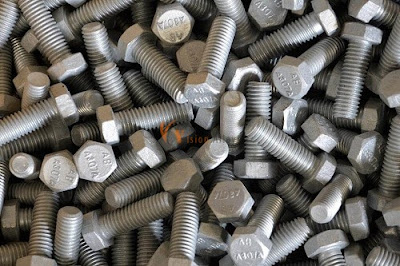Inconel 625 Fasteners
The Role of Inconel 625 Fasteners in Offshore and Marine Environments
Inconel 625 is a popular nickel-chromium-based super alloy known for its excellent corrosion resistance, high strength, and durability. These qualities make it a preferred material for various applications in offshore and marine environments. Inconel 625 shines in fasteners. Fasteners, such as bolts, screws, and nuts, play a critical role in holding together different components of structures and equipment in these demanding environments. In this article, we will explore the essential role of Inconel 625 fasteners in offshore and marine applications.
Corrosion Resistance
Offshore and marine environments expose structures and equipment to harsh conditions, including saltwater, high humidity, and aggressive chemicals. Corrosion becomes a significant concern in such environments, as it can lead to structural failure and compromise the integrity of the equipment. Inconel 625 Bolts offer exceptional corrosion resistance, making them ideal for these challenging settings.
Inconel 625 fasteners are highly resistant to pitting, crevice corrosion, and intergranular corrosion. They can withstand seawater and various chemicals, including sulfuric acid, hydrochloric acid, and organic acids. Corrosion resistance ensures fasteners' longevity and reliability, even in offshore and marine conditions.
High Strength and Durability
Offshore and marine applications often require fasteners to withstand high levels of mechanical stress, such as tension, compression, and vibration. Inconel 625 fasteners possess remarkable strength and durability, allowing them to handle these demanding loads effectively.
With high tensile strength and excellent fatigue resistance, Inconel 625 fasteners can withstand dynamic loads experienced in offshore structures, marine vessels, and underwater equipment. Their strength also ensures that fasteners remain secure and maintain structural integrity over an extended period. This reduces the risk of failure and frequent maintenance.
Temperature Resistance
Inconel 625 fasteners have exceptional temperature resistance. Offshore and marine environments can experience extreme temperature variations, including high heat and sub-zero conditions. Inconel 625 retains its mechanical properties even at elevated temperatures, making it suitable for applications where thermal stability is crucial.
The fasteners can withstand temperatures up to 1000°C (1832°F) without significant loss of strength or corrosion resistance. This ability to handle high temperatures makes Inconel 625 fasteners suitable for applications involving engines, exhaust systems, and other equipment exposed to intense heat.
Non-Magnetic Properties
Inconel 625 fasteners exhibit non-magnetic properties, which can be advantageous in certain offshore and marine applications. In environments where magnetism interferes with sensitive equipment or instruments, non-magnetic fasteners are essential.
For example, in oil and gas exploration, where magnetic interference can disrupt electronic sensors and instruments, non-magnetic Inconel 625 Bolts are preferred. They allow accurate readings and reliable equipment operation without the risk of magnetic interference.
Conclusion
Inconel 625 fasteners play a vital role in ensuring the performance, safety, and longevity of structures and equipment in offshore and marine environments. Their corrosion resistance, high strength, durability, temperature resistance, and non-magnetic properties make them ideal for these challenging applications.
Whether it's securing components on offshore platforms, marine vessels, or underwater equipment, Inconel 625 fasteners provide the reliability and integrity required in harsh conditions. Investing in high-quality Inconel 625 fasteners is essential to minimize maintenance costs, prevent failures, and ensure offshore and marine projects.



.png)
Comments
Post a Comment